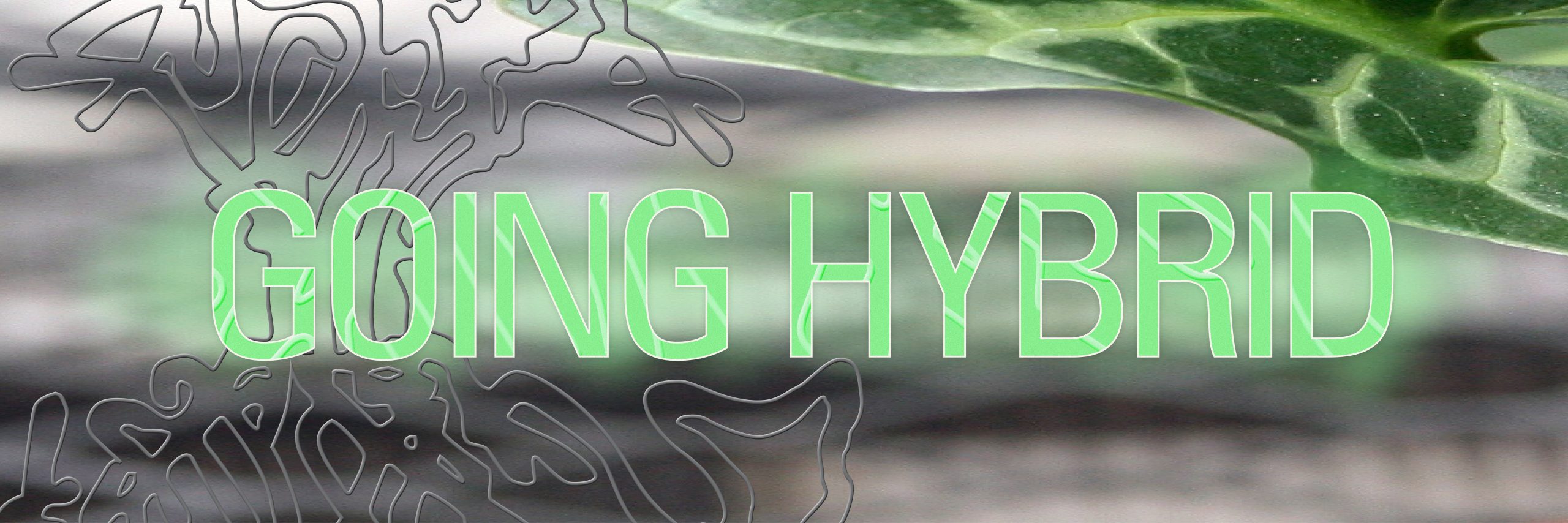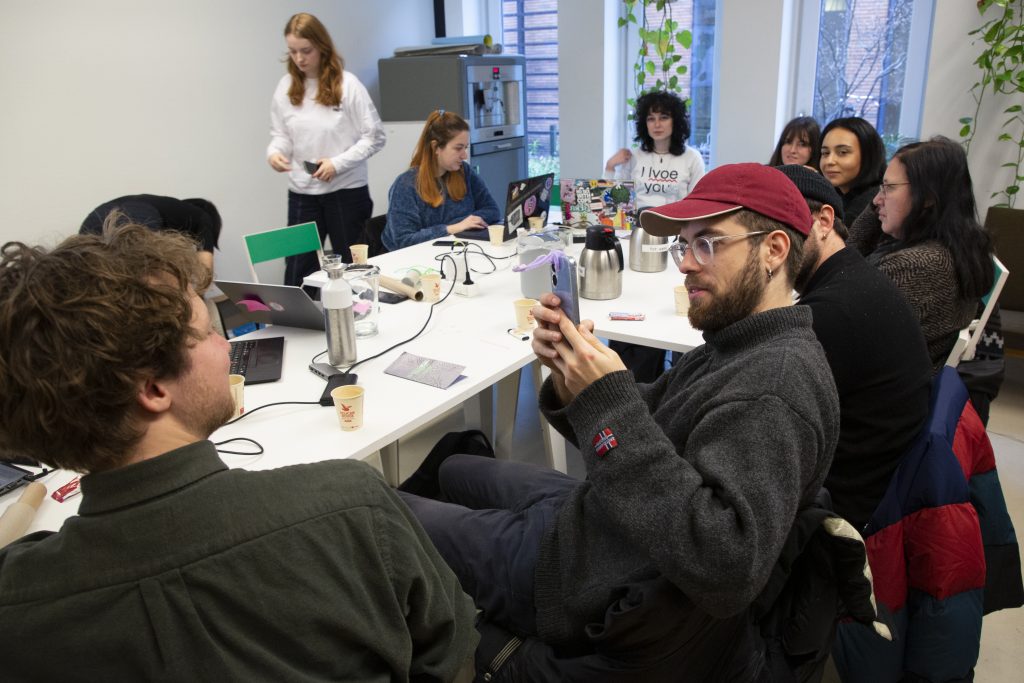
The workshop Small Clumsy Intimate Devices for Awkward Hybrid Setting was led by , two students of the Experimental Publishing Masters (EXPUB) at the Piet Zwart Institute. This workshop asked how we can bring back intimacy and modes of togetherness when hybrid media occur.
We started by dividing roles to read the script of the workshop. Clumsily, we were reading as narrators, announcers, quotes, and facilitators while canonic elevator music was playing in the background. From the quotes, we heard about how the awkwardness of a hybrid setting reveals humanness. Talking all at once due to latency, speaking while muted, or unmuting in a loud environment without being unaware of it—all of this brings the actual person behind the screen, instead of all the buttons and interfaces, into the limelight.
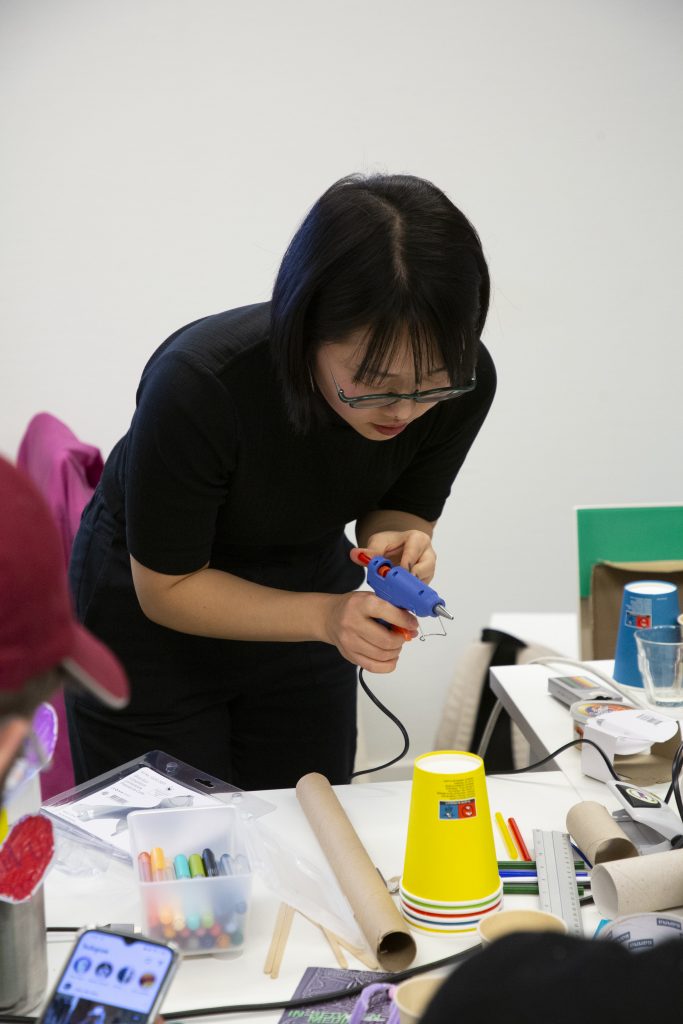
Together, in the Etherpad, we wrote down our own anecdotes of awkwardness in online hybrid settings and took turns in reading aloud about:
- Birthday parties over Zoom in different time zones, in unequal states of sobriety and drunkenness
- Assessments with teachers confessing to being in underwear during the call
- Teaching into the void of cameras turned off
- And mandatory end-of-the-year online dance parties among many others…
You can read the entire pad here: https://pad.xpub.nl/p/awkward_hybrid_publishing
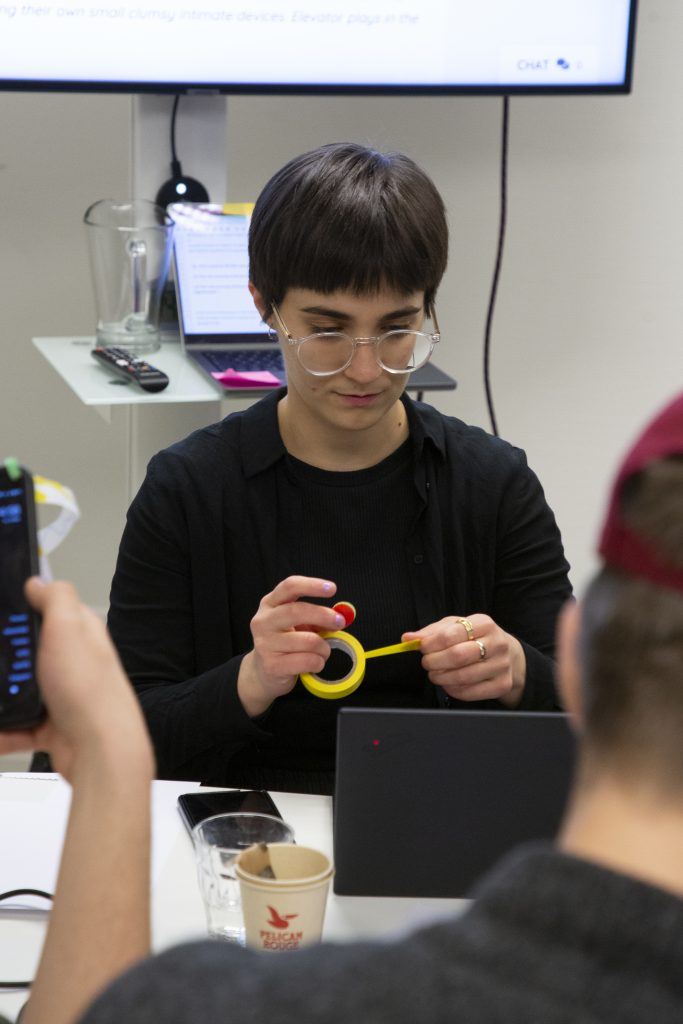
From a slow activation, everyone was now itching to giggle and shake off the experiences. As Femke Snelting’s quote emphasized, “we use our awkwardness as a strategy to cause interference, to create pivotal moments between falling and moving, an awkward in-between that makes space for thinking without stopping us to act.” With this in mind, the facilitators guided us to find the recurring tropes—archetypes of online mishaps and failures—in our anecdotes.
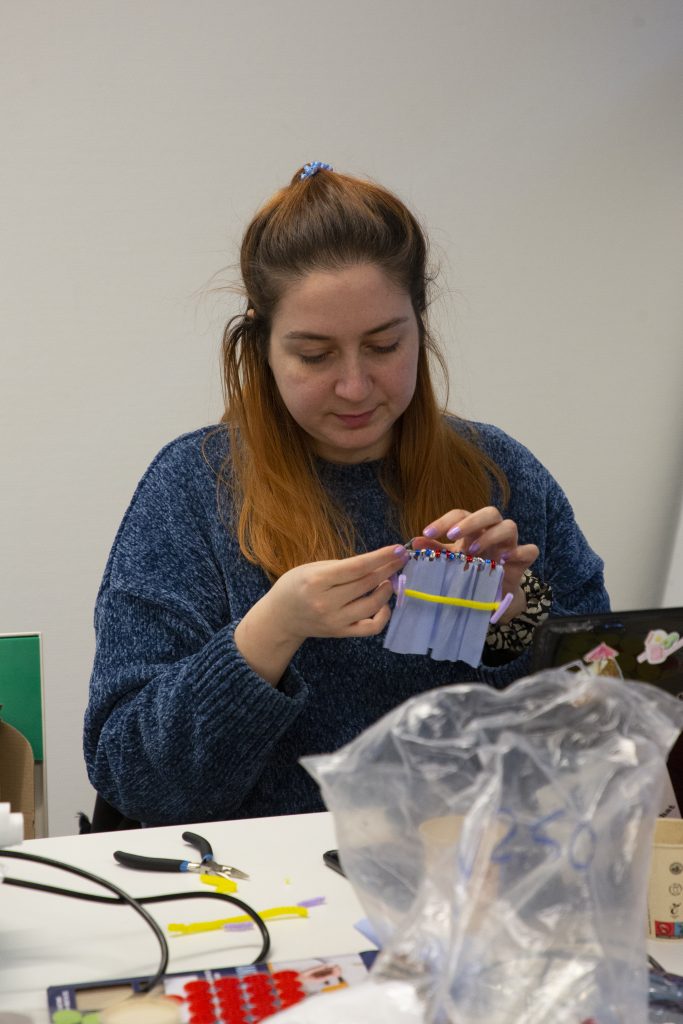
After sharing our uncomfortable online experiences, we dived into the tactical part of the workshop — making intimate devices for a hybrid setting. With March snow steadily falling, we switched from the semi-distracting elevator music to a recommendation from the Etherpad chat: the very best of Klaus Wunderlich. Chae demonstrated a prototype of glasses she made with window blinds attached to the frame. While wearing them, you can open or close your blinds to light up a conversation.
More kindred devices were laid out for us as inspiration, from curtains for your laptop camera, to analog loading contraptions which you power yourself. Next to them, is a wide array of gadgets and materials for building our own intimate devices. With zigzag scissors, decorative flower stickers, and a little whimsy, we crafted filters and devices to test and share in a zoom call. As one could expect of a setting that embraces technological awkwardness, someone forgot to mute, and a dizzying cacophony of voices echoed throughout.
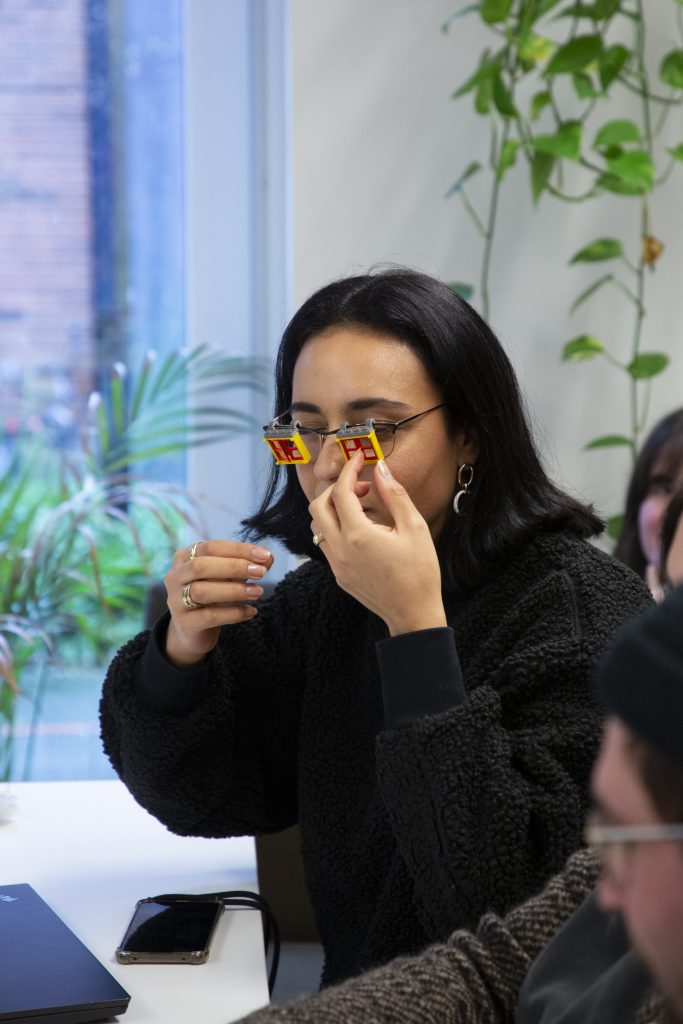
During the reflection, the workshop participants created their own devices, from DIY amplifying microphones and catapults directed at their screens to wiggly character filters dancing around their cameras and masks which partially cover their screens. With a small intervention, a clumsy device, and embracing awkwardness, we imagined alternative modes of togetherness online. This did not translate into the plenary talk of XPUB, presumably because of the change of venue and seating arrangements. Nevertheless, we’ve come closer to understanding what space, albeit temporary, intimacy can hold in hybrid settings.
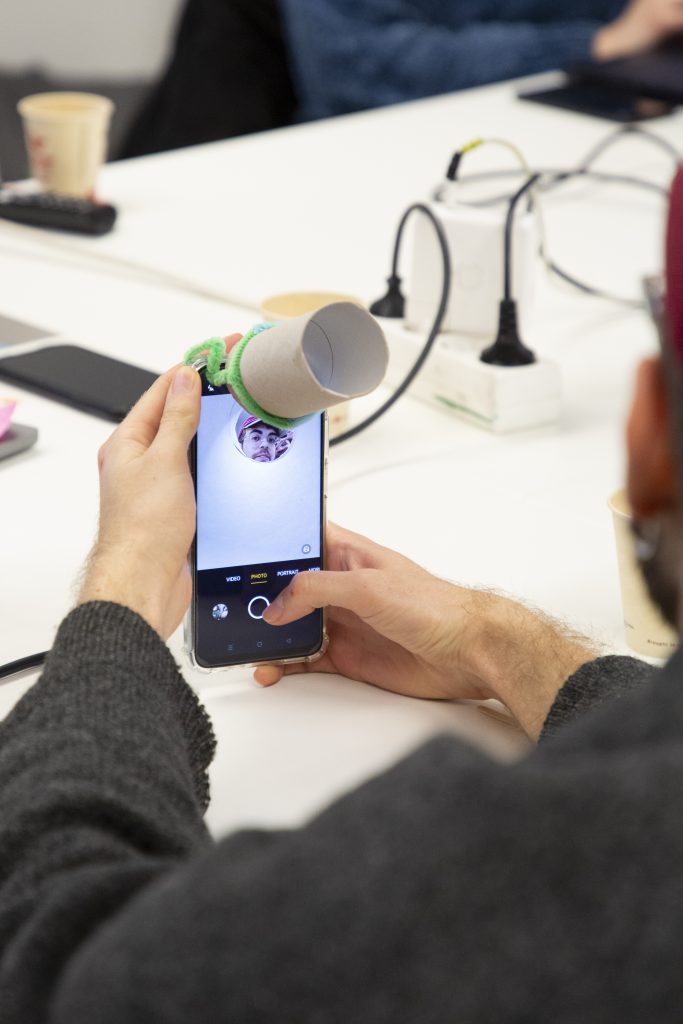
The workshop was based on the personal experiences of Chae and Erica as well as research. To delve further into the subject, we suggest reading:
- Collins, S. (2020). Intimacy: An Alternative Model for Literary Translation. English: Journal of the English Association, 69(267), pp.331–345. doi:https://doi.org/10.1093/english/efaa033
- freeze.sh. (n.d.). Femke Snelting: Awkward Gestures: Designing with Free Software. [online] Available at: https://freeze.sh/_/2008/awkward/# [Accessed 9 Mar. 2023].
- Ahmed, S. (2004). The Cultural Politics of Emotion. New York: Routledge Taylor & Francis Group.
- Chun, W.H.K. (2018). Queerying Homophily Muster der Netzwerkanalyse. Zeitschrift für Medienwissenschaft, 10(18-1), pp.131–148. doi:10.14361/zfmw-2018-0112.


